第102章 CHAPTER VIII.
M. de Brisacier and King Casimir.--One Is Never so Well Praised as by Oneself.--He Is Sent to Get Himself Made a Duke Elsewhere.
The Abbe de Brisacier, the famous director of consciences, possessed enough friends and credit to advance young Brisacier, his nephew, to the Queen's household, to whom he had been made private secretary.
Slanderers or impostors had persuaded this young coxcomb that Casimir, the King of Poland, whilst dwelling in Paris in the quality of a simple gentleman, had shown himself most assiduous to Madame Brisacier, and that he, Brisacier of France, was born of these assiduities of the Polish prince.
When he saw the Comte Casimir raised to the elective throne of Poland, he considered himself as the issue of royal blood, and it seemed to him that his position with the Queen, Maria Theresa, was a great injustice of fortune; he thought, nevertheless, that he ought to remain some time longer in this post of inferiority, in order to use it as a ladder of ascent.
The Queen wrote quantities of letters to different countries, and especially to Spain, but never, or hardly ever, in her own hand. One day, whilst handling all this correspondence for the princess's signature, the private secretary slipped one in, addressed to Casimir, the Polish King.
In this letter, which from one end to the other sang the praises of the Seigneur Brisacier, the Queen had the extreme kindness to remind the Northern monarch of his old liaison with the respectable mother of the young man, and her Majesty begged the prince to solicit from the King of France the title and rank of duke for so excellent a subject.
King Casimir was not, as one knows, distrust and prudence personified; he walked blindfold into the trap; he wrote with his royal hand to his brother, the King of France, and asked him a brevet as duke for young Brisacier. Our King, who did not throw duchies at people's heads, read and re-read the strange missive with astonishment and suspicion. He wrote in his turn to the suppliant King, and begged him to send him the why and the wherefore of this hieroglyphic adventure. The good prince, ignorant of ruses, sent the letter of the Queen herself.
Had this princess ever given any reason to be talked about, there is no doubt that she would have been lost on this occasion; but there was nothing to excite suspicion. The King, no less, approached her with precaution, in order to observe the first results of her answers.
"Madame," he said, "are you still quite satisfied with young Brisacier, your private secretary?""More or less," replied the Infanta; "a little light, a little absent;but, on the whole, a good enough young man."
"Why have you recommended him to the King of Poland, instead of recommending him to me directly?""To the King of Poland!--I? I have not written to him since Icongratulated him on his succession."
"Then, madame, you have been deceived in this matter, since I have your last letter in my hands. Here it is; I return it to you."The princess read the letter with attention; her astonishment was immense.
"My signature has been used without authority," she said. "Brisacier alone can be guilty, being the only one interested."This new kind of ambitious man was summoned; he was easily confounded.
The King ordered him to prison, wishing to frighten him for a punishment, and at the end of some days he was commanded to quit France and go and be made duke somewhere else.
This event threw such ridicule upon pretenders to the ducal state, that Ino longer dared speak further to the King of the hopes which he had held out to me; moreover, the things which supervened left me quite convinced of the small success which would attend my efforts.